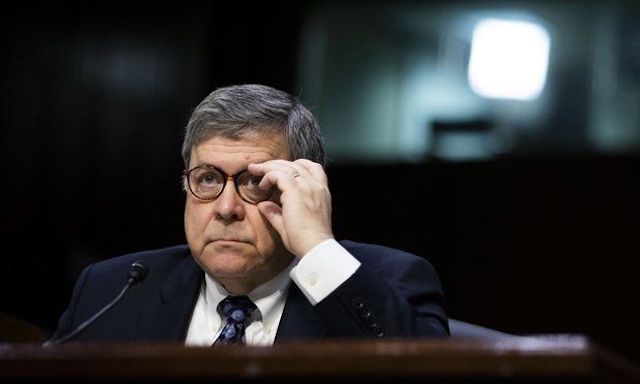U.S. House of Representatives Judiciary Committee Chairman Jerry Nadler has given an ultimatum to Attorney General William Barr to send Special Counsel Robert Mueller’s Russia report to Congress without redactions by 2 April.
“As I informed the Attorney General earlier this week, Congress requires the full and complete Mueller report, without redactions, as well as access to the underlying evidence, by April 2. That deadline still stands,” Nadler said.
His statement followed Barr’s in which Barr said he would release the report by mid-April after making redactions, in a letter sent Friday to the chairmen of the House and Senate Judiciary Committees.
Barr indicated he is planning to release the report and would testify before the committees about it on May 1 and May 2.
“I share your desire to ensure that Congress and the public have the opportunity to read the Special Counsel’s report. We are preparing the report for release,” Barr wrote.
Barr said his office was working with Mueller to make the “redactions that are required” before releasing the report. This would include information related to sensitive investigative sources and methods, confidential grand jury proceedings, and “material that could affect other ongoing matters,” including ones Mueller referred to other DOJ offices.
“Our progress is such that I anticipate we will be in a position to release the report by mid-April, if not sooner,” Barr wrote.
Barr also indicated the White House would not review the report prior to release, nor ask for material to be withheld due to executive privilege.
“Although the President would have the right to assert privilege over certain parts of the report, he has stated publicly that he intends to defer to me and accordingly, there are no plans to submit the report to the White House for a privilege review,” wrote Barr.
Barr’s latest letter came after five days of wrangling over the conclusion of Mueller’s probe. On March 24, two days after Barr announced Mueller concluded his investigation and submitted a confidential report on his findings, the attorney general sent another letter to the Judiciary Committees notifying them of the special counsel’s “principal conclusions.”
In that four-page document, Barr said Mueller’s report was divided into two main parts: analyzing whether Americans “joined the Russian conspiracies to influence the election,” and addressing whether Trump had potentially obstructed justice in his attacks on the investigation and top officials involved in it.
On the first point, Barr quoted Mueller saying his team “did not establish that members of the Trump Campaign conspired or coordinated with the Russian government in its election interference activities.” Mueller was apparently less definitive on the question of potential obstruction. Barr wrote that the special counsel “did not draw a conclusion — one way or the other — as to whether the examined conduct constituted obstruction” and instead left it to the attorney general to decide whether a crime had been committed.
Since the release of Barr’s letter describing the report, Trump and his allies have described it as a complete vindication of the president. While Barr indicated Mueller did not find direct evidence Trump’s campaign cooperated with the Russian election intervention, his investigation did lead to multiple indictments of top Trump campaign aides for, among others things, lying to Congress and investigators about their contacts with Russian officials. Democrats responded to Barr’s letter by pushing for the release of the full report and argued that a four-page summary from the attorney general, a Trump appointee who had criticized the Mueller investigation before taking his post, was inadequate.
Even if Barr does release the report, the political fights over Mueller’s investigation will likely continue. Congressional Democrats are also seeking Mueller’s underlying evidence, including potential grand jury materials.
Barr concluded his letter by objecting to what he described as “statements mischaracterizing” his earlier report on the principal conclusions of the investigation.
“My March 24 letter was not, and did not purport to be, an exhaustive recounting of the Special Counsel’s investigation or report,” Barr wrote.
NAN







2 Comments